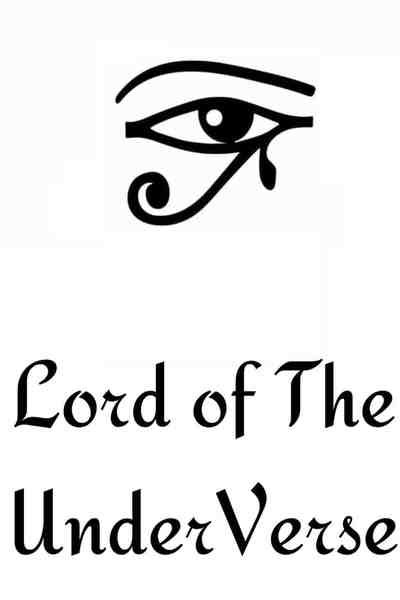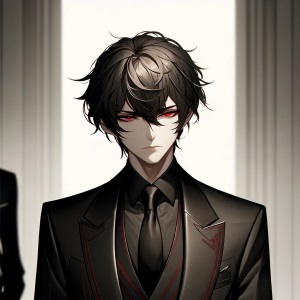In a dimly lit conference room of a secluded Yakuza compound, Daimon sat across from Masura. The air was thick with tension. Masura, known for his calm and controlled demeanor, stared sternly at Daimon.
"Daimon, killing the young head of the Kitagawa clan was unacceptable. Reckless. Yet, you managed to acquire his territory. Impressive, but foolish," Masura said, his voice low but firm. "I had you locked up for this, and you still defied the curfew I set."
Daimon opened his mouth to argue, but Masura cut him off. "I've called your father."
Daimon's eyes widened in shock. "What?"
Before he could say more, the door opened. In walked a figure Daimon hadn't seen for years — his father. The room, already heavy with tension, seemed to grow smaller. His father carried himself with the aura of someone who had risen through the ranks and now managed Yakuza territory in the U.S.
Noboru Kaito, Daimon's father, scanned the room before his gaze landed on his son. His expression was stern, with a hint of something unreadable in his eyes.
"Daimon," his father began, his voice firm. "Your actions have consequences, not just here in Japan, but for our interests worldwide. You need to understand the bigger picture."
Daimon, usually ready to argue, stayed silent. The years of separation had built a distance between them, filled with unspoken expectations and the weight of a legacy Daimon hadn't fully grasped.
His father leaned forward, his voice intense but measured. "You have the instincts of a leader, but not the control. True power isn't about showing strength all the time; it's about knowing when to act and when to hold back."
He paused, letting the words sink in. "What you see as a victory—taking over Kitagawa's territory—also brings risk. You make enemies, create unrest. You need to think ahead, like in Shogi."
Daimon listened, his usual defiance replaced by the seriousness of his father's tone.
"Your actions here have sent shockwaves to our operations in the U.S.," his father continued. "We're not just a gang; we're an international organization. We navigate politics, economics, alliances. It's a delicate balance."
Daimon shifted uncomfortably, starting to understand the weight of what his father was saying.
His father leaned back, his eyes still locked on Daimon. "You have potential, son. But you need control. A leader doesn't just wield power—they understand when and why to use it. That's the difference between a reckless fighter and a true leader."
Daimon nodded, the rebellious spark in his eyes fading into something more thoughtful.
"From now on," his father concluded, "you'll work with Masura. He'll teach you strategy and leadership. This is your chance to grow beyond street-level fights and become part of something bigger."
Daimon nodded, accepting. "What kind of work will we do?"
His father's response took him by surprise. He thought he heard, "Mental hospital," but his father actually said, "You will attend high school."
"What?!" Daimon blurted out.
"Yes, Daimon. We've talked about it, and we believe homeschooling you your whole life has had... unintended consequences. Spending a year in high school will be good for you. It's not just about learning subjects. It's about understanding how to interact, negotiate, and blend in with people from all walks of life."
Daimon tried to argue, "But I've managed the streets and territories..."
His father interrupted, "Streets and territories are just a part of our world. To lead people, to predict their actions, you need to understand them—their lives, their struggles, their motivations. High school is like a small version of society. Watch, learn, interact."
Daimon, still in disbelief, fell silent. The idea of going to a regular high school seemed ridiculous, almost humiliating.
His father continued, "This isn't just about discipline. It's about perspective, something you lack. You'll go to Uroro High. It's diverse, challenging, and will show you a world you've been sheltered from."
Seeing no point in arguing, Daimon finally nodded. "Alright, father. If you think it's best."
As his father and Masura left the room, Daimon sat back, trying to process the fact that he—a figure feared by many—was now going to be a high school student. It was a strategy he hadn't seen coming, a lesson in humility and understanding that he hadn't realized he needed. But if this was the path laid out for him, he would walk it—and see where it led.
Meanwhile, Nero, sitting at his desk, sorted through a pile of mail. An elegantly embossed invitation caught his eye. It was for an art exhibition hosted by Kiyoshi Tanaka, a renowned art collector. The invitation promised an exclusive display of rare and valuable artworks. Nero was intrigued, suspecting that this was more than just an art show.
At the downtown gallery, Nero found himself surrounded by stunning paintings and sculptures, with wealthy art enthusiasts mingling around. As he moved through the gallery, he overheard hushed conversations. Some of the guests spoke in coded language, and certain paintings had strange symbols, almost like hidden messages.
Admiring a particularly striking piece, Nero casually commented to a nearby guest, "The brushwork on this piece is remarkable, isn't it?"
The guest gave Nero a sideways glance and replied, "Oh, indeed. The artist has a unique way of conveying depth. Or should I say, 'depth of the market'?"
Just then, Hiroshi, an influential figure, approached Nero. Hiroshi was calm and collected, but the intensity in his eyes hinted at something more beneath the surface.











Comments (10)
See all